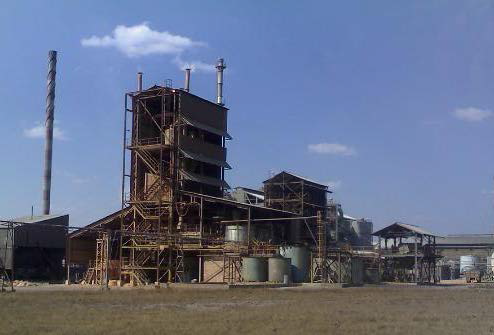SABLE Chemicals, Zimbabwe's sole producer of ammonium nitrate fertiliser, has taken coal samples from Sengwa in Gokwe to China to test the feasibility of processing the mineral for hydrogen.
Gasified coal would be used to derive among others hydrogen, a key input in the production of ammonia. Sable wants to change its current production process to coal gasification from electrolysis.
The TA Holdings associate will require an estimated $800 million to change to gasification, which would be either from coal or coal bed methane.
Zimbabwe has huge deposits of coal-bed methane gas in Matabeleland North, which if fully utilised, could also help alleviate power shortages apart from its potential for hydrogen.
Deputy chairman Misheck Kachere told our Harare Bureau that samples from Sengwa have been sent to the Beijing Institute of Technology.
"We would want to use the coal from Sengwa or coal bed methane in Matabeleland," he said.
However, he pointed out that bringing the coal gasification project to fruition would require huge investment, meaning that the plant would have to be accorded national project status.
"That kind of money means the plant has to be a national project. We are talking to the relevant stakeholders to see how we would move with that project. We want to replace electrolysis with either coal gasification or coal bed methane technology," Kachere said.
Subject to securing government and bank guarantees as well as requisite funding in time, Kachere said that Sable Chemicals would be able to replace the electrolysis plant by 2017 or 2018.
He said feasibility studies on the two technology options available had been undertaken while samples from Sengwa have been sent to China to test if they could be gasified for hydrogen.
The electrolysis plant has been the biggest constraint to Sable Chemicals efforts to achieve sustainable viability as the antiquated technology consumes huge amounts of power.
It is against this background that Sable Chemicals has engaged Zesa Holdings for another subsidised power tariff to enable the firm to cut its power bill and keep the electrolysis plant running.
The firm is currently billed at 14 cents a kilowatt hour and would require a subsidised rate of around 3 cents per unit to sustain the huge electricity bill from the electrolysis plant. At full capacity, the company requires 115 megawatts, but is currently using 40 megawatts per day, and hopes to be able to produce 100,000 tonnes of AN Fertiliser by this year.
Chief executive Jack Murehwa recently said: "Because of the strategic placement of Sable in the nation's economy, the cost of power to produce AN at the factory is always a subject for discussion among the three players – government, Sable and the power utility.
Sable Chemicals is operating at around 33 percent of capacity forcing the company to import ammonia for it to fulfil national demand.
Kachere however said that even if the company had enough funding and was running at full capacity, it would still need to import at least 33 percent of its ammonia requirement.
Kachere said financial resource support to other major producers such as Zimbabwe Fertiliser Company, Dorowa and Windmill would drastically cut the amount of imported fertiliser.
Zimbabwe's sole ammonium nitrate fertiliser manufacturer is presently saddled with a $57 million electricity bill debt, which may weigh heavily on its capacity to produce fertilizer.
Sable Chemicals has potential to produce an estimated 240,000 tonnes of fertiliser per annum but is currently producing around 70, 000 tonnes weighed by the obsolete electrolysis plant.
- chronicle
 OK Zimbabwe posts US$17,8 million loss
OK Zimbabwe posts US$17,8 million loss  Hichilema meets Chivayo
Hichilema meets Chivayo  Millions celebrate Diwali festival in India
Millions celebrate Diwali festival in India  Econet Zimbabwe to delist from ZSE
Econet Zimbabwe to delist from ZSE  Gold edges up as traders await guidance
Gold edges up as traders await guidance  Mnangagwa fires Chitando, appoints Polite Kambamura
Mnangagwa fires Chitando, appoints Polite Kambamura  Young Investment Professional (YIP) Graduate Programme 2019
Young Investment Professional (YIP) Graduate Programme 2019 











 Young Investment Professional (YIP) Graduate Programme 2019
Young Investment Professional (YIP) Graduate Programme 2019
Editor's Pick